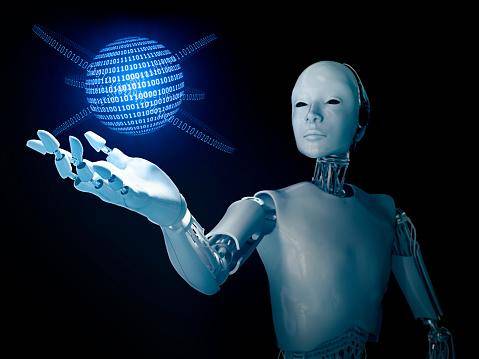
I am sick of the word “AI-powered”

I recently saw this tweet from Matt Charney
“Who here thinks AI in recruiting is totally BS and all hype?” Awkward silence as I’m the only person who raises their hand…
— Matt Charney (@mattcharney) September 21, 2017
I am just too wary of the term “AI powered” and the illusion it has created. A whole bunch of products are calling themselves AI-powered and doing the same old. I am not saying that everyone who claims to be AI-powered is peddling the same old shit in a new package, it’s just that, a whole bunch of them are. The ones who are probably doing genuine work, don’t peddle magic. There is no doubt that AI will have a measurable impact on the global workplace and how it gets automated, but it’s not the ultimate panacea everyone is touting it to be.
Early days.
And yeah, AI is such a loose term these days. Real AI work is long way off even for us. First, let’s run these pilots! https://t.co/NknNJxbmWC— punitsoni (@punitsoni) September 21, 2017
How to figure out if something is truly AI or not?
Peter Thiel said in an interview that “When people use the word science, it’s a tell, like in poker that they are bluffing.” I feel the same way about “AI-powered.” I hear a pitch that says we are going to solve/revolutionize an industry with AI — I turn my BS filter on. However, we are at a stage where we can solve some very specific and real problems with AI. Think AI-powered scheduling or an AI-powered tool that can assist physicians in locating a tumor in a medical image. So the question is —
What exactly can AI do and what it can’t do? (At least for now)
To find the answer to this question, we need a better understanding of what really AI is. There are two kinds of artificial intelligence. The first is artificial narrow intelligence, which can solve a well-defined problem and needs a whole lot of data from past experience to learn how to do that. All AI that we see today is weak AI or narrow AI at most. This means that with weak AI, we are pretty close to automating specific repetitive tasks that do not require heavy cognitive abilities.
On the other hand, there is the holy grail where we need to be to make humans obsolete – artificial general intelligence – where machines have consciousness and sentience. We are still quite far away from this.
What does this mean for all of us in recruitment and TA?
This seems to be a burning question — “Would we still have our jobs or would we be obsolete?”. I wish there was a simple answer but like most things in the world, there isn’t any.
Before I proceed any further I want to state that I am no expert in AI. Also, most things I would say here about AI will probably stay valid for the next five years but definitely not beyond that. Most predictions are wrong(don’t believe me? See what McKinsey had to say about mobile technology) in the long run but we can see what’s right ahead of us in the short term.
With these caveats let’s see if AI is going to reshape the job market and replace recruiters and talent acquisition specialists. The answer is both yes and no. AI will definitely take over the most mundane and repetitive parts of our job like Scheduling or maybe even application screening. But is that all a recruiter does?
What exactly is a recruiter’s job?
If you spend more than 50% of your time posting your openings to the plethora of job boards, gathering applicants, and managing the recruitment process (i.e. — scheduling and coordinating interviews), I’ve got bad news for you. Your job will be taken over by machines — for the most part. Matt raised his hand because he understands what exactly is the job.
- Understand the role: A recruiter first needs to understand the role in the context of the organization and the culture. Build a brand and act as the first gatekeeper of who comes in for the interviews with the team. Your true measure of success is not the no. of candidates interviewed but your interview-to-hire ratio!
- Be a friend of the candidate: This is what sets great recruiters and great sales reps apart from each other. This was suggested to me by my good friend and earliest user of Recruiterflow — Mawulom. Your job is to build a relationship with the candidate and be the friend they need in their career transition. Allay their apprehensions and fears of a new environment and make sure that they understand that it’s a great move for them.
- Negotiate the interview process: It goes without saying that managing an interview process is not about scheduling and pushing everyone to come to a decision. It is about managing the expectations of the hiring team and making sure that implicit biases don’t come in the way of hiring a great candidate. It is about making sure that you don’t miss out on stallions searching for the elusive unicorns. Virginia at Spotify recently drove this point home in a brilliantly done blog post and so did John from recruiting daily.
These three are the jobs that require general intelligence. We face these situations every day and they pose a different challenge every day that can’t be tackled by the most sophisticated AI we can see today. This is the JOB and that’s why someone like Matt, didn’t put his hand up getting tired of all the BS that is peddled in the name of AI.
<end of rant>
Analysis


Manan Shah